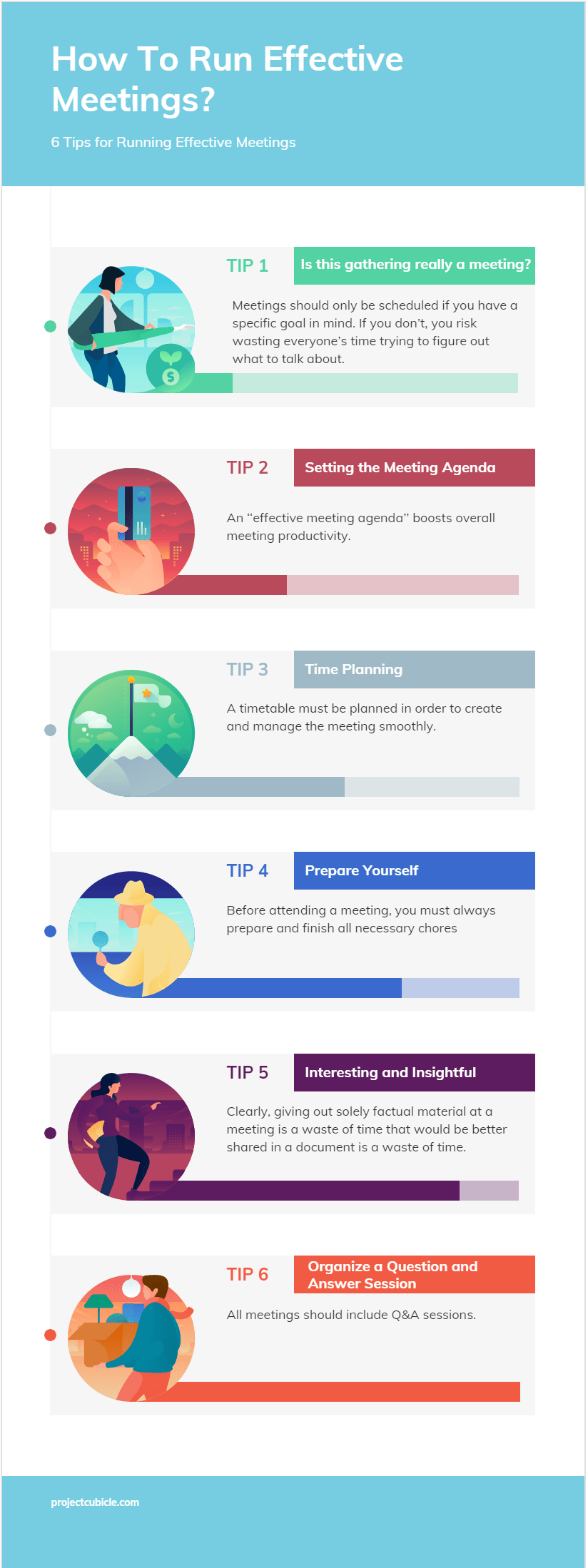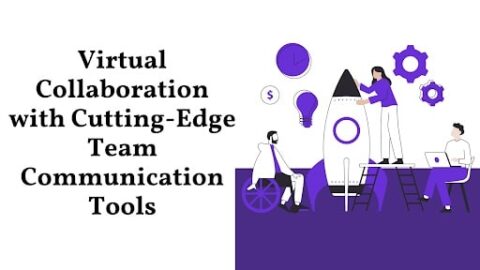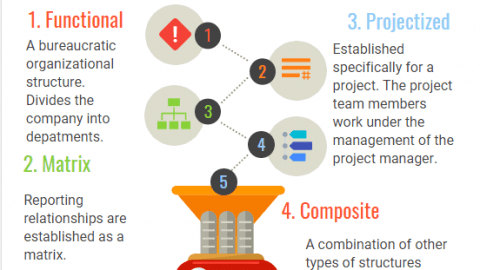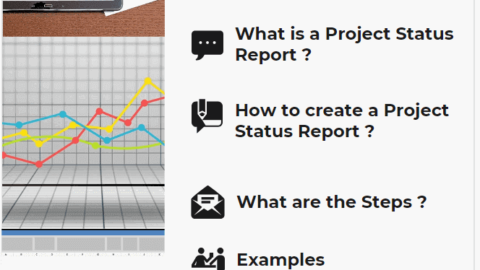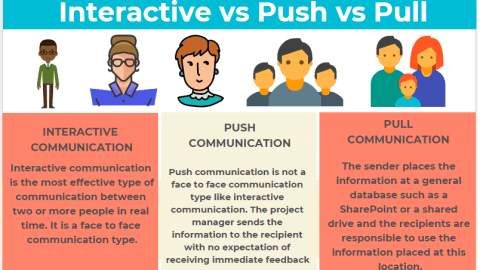Creating and Management of Effective Meetings
Meetings are a good approach to organize people, develop plans, and plan tasks. They exist primarily to accomplish one goal: to complete a task. Meetings, on the other hand, can be a waste of time, money, and effort if they are badly organized and handled. ‘‘How to run effective Meetings?’’ Make the most of time and be productive. Meeting goals and conversation topics are clearly stated in an ‘‘effective meeting agenda’’. It is written in such a way that it assists team members in getting on the same page before, during, and after the meeting, while also delivering all of the required information to ensure the team’s success. In addition, Maintaining that everyone respects the time given is a crucial component of ‘‘running effective meetings’’. Start the meeting on time, don’t waste time recapping for latecomers, and conclude on time if possible. What kind of ways should be followed and what should be considered when creating effective meetings? In this article, we’ll give you some tips on how to run an effective meeting and avoid wasting time.
Table of Contents
How To Run Effective Meetings?
One of the most crucial skills for employees at all levels to learn is how to conduct effective meetings. While wasting time is normally inappropriate in all other elements of corporate life, according to a recent study published in the Journal of Organizational Behavior “in the case of meetings, wasted time seems to be an accepted norm. An ‘‘effective meeting agenda’’ can be as simple as a list of subjects or as complicated as a paper. The amount of detail to offer is determined by the sort of meeting and how organized you want to be.” What’s more, with a little preparation, you can get your meeting on the correct track to manage ‘‘running effective meetings’’. It doesn’t have to take up all of your time; a few minutes of planning can go a long way. There are some tips for running effective meetings:
Tips for Running Effective Meetings
1. Consider this: Is this gathering really a meeting?
Meetings should only be scheduled if you have a specific goal in mind. If you don’t, you risk wasting everyone’s time trying to figure out what to talk about. You will most likely exit the meeting in the same state as when it began. If people have a lot of meetings booked but nothing important to talk about, they need to cancel one of them. Staff meetings are beneficial for excellent communication, but they must strike a balance between this goal and other effective uses of their time. Defining the meeting aim — the “why” — is the first step in ‘‘running effective meetings’’. This will help you keep the conversation focused and measure the success of your meeting.
2. Setting the Meeting Agenda
One of the most important elements for an ‘‘effective meeting’’ is the agenda. Provide your plan in the invitation so that individuals may decide if they truly need to attend and, if not, refuse or suggest someone else. We support this situation with a quote: “Give me an agenda or else I’m not going to sit there, because if I don’t know why we’re in the meeting, then there’s no reason for a meeting.” —Annette Catino, chief executive of the QualCare Alliance Network.
The agenda for the meeting can be summarized or declared using e-mail tools so that everyone knows why they’ve convened and what they’re intended to be doing. As it outlines expectations for what should happen before, during, and after a meeting, an ‘‘effective meeting agenda’’ boosts overall meeting productivity.
3. Time Planning
A timetable must be planned in order to create and manage the meeting smoothly. For instance, delay is a bad habit and not ethical behavior in society. As everyone has a business life and daily plans, if someone is late, the meeting may be delayed and therefore the meeting does not make a good impression on the members.
Macy’s chairman, Terry Lundgren, has never shied away from enforcing a stringent culture of on-time meetings. He explains this issue in this way: “If the meeting is at 8, you’re not here at 8:01, you’re here at 8 because the meeting’s going to start at 8,” he said. “Busy people that can’t get off the last phone call to get there, need to discipline themselves to be there on time.”
4. Prepare Yourself
In this section, it is followed a series of the creation and implementation of an agenda. Before attending a meeting, you must always prepare and finish all necessary chores. It will not only help keep the meeting on track, but it will also demonstrate that you care about the meeting enough to prepare for it. What’s more, an ‘‘effective meeting agenda’’ establishes clear guidelines for what should happen before and during a meeting. It assists team members in planning, allocating time wisely, swiftly bringing everyone on the same page, and determining when the discussion is finished.
There should be certain that everyone else has sufficient time to plan and prepare. To allow personnel enough time to prepare for the meeting, distribute the agenda two days ahead of time. Make sure to include in staff schedules – for example, if an employee has the day before the meeting off – and plan accordingly so that they have enough time to prepare.
5. Interesting and Insightful
Clearly, giving out solely factual material at a meeting is a waste of time that would be better shared in a document is a waste of time. However, if the information needs to be heard from a specific person, or if it requires some clarification and comment to make sense of it, or if it has significant implications for the meeting’s members, it is completely reasonable to add an item to the agenda that does not require the meeting to reach a conclusion, make a decision, or take action; it is sufficient, simply, for the meeting to receive and examine a review.
6. Organize a Question and Answer Session
Despite the fact that it is frequently pushed to the conclusion of the meeting and receives little committed time, it is just as significant as the meeting itself. All meetings should include Q&A sessions, but it’s especially vital if you’re meeting with outside clients or people who aren’t on your team. By holding these sessions, you actively involve participants in the meeting and force them to consider what was stated and whether or not they completely comprehended it.
Another Subject is: The Significance of Effective Meeting Management
Meetings account for approximately 30% of an average employee’s work time, according to research. Are you curious as to why? Only 38% of the genuine meaning and feeling of a message is conveyed by the way things are spoken, 7% by word choice, and the other 55%, which is the highest fraction, is conveyed by facial movements and other non-verbal indicators.
‘‘Effective Meeting Management’’ skills also guarantee that all team members provide relevant information, which aids in the discovery of the best solutions to the problems at hand. Meeting management may also boost employee morale and satisfaction by increasing communication, interpersonal relationships, and teamwork.
Furthermore, if meetings are so vital, so is the capacity to successfully manage them. Meeting management abilities are most important when it comes to cost-efficiency. Employees will squander less time if a meeting is well-organized, resulting in higher productivity and money for the company. ‘‘Running effective meetings’’ brings together a carefully chosen group of individuals for a specific purpose, provides a venue for open conversation and produces a tangible outcome: a decision, a plan, a list of outstanding ideas to explore, and a shared understanding of the work ahead.
As a result of this article, even if this was a one-time meeting, the tips for running effective meetings will help you plan even better for the next one. Maintain an open line of communication with the people you see on a regular basis and prioritize progress over perfection. Continual progress is the way to go!
See Also

Dan Sanderton has 19 years of experience in the publishing world as an editor and writer, including his former role as marketing director of ProjectHills Consultancy, and now as Content Developer for PMI.

